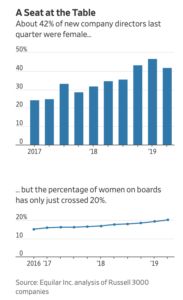Margot Roosevelt, Johana Bhuiyan and Taryn Luna reported last week at the Los Angeles Times Online that, “California lawmakers rewrote the rules of employment across a wide swath of industries [last week] in legislation that could grant hundreds of thousands of workers new job benefits and pay guarantees.
“After vigorous debates over what occupations should be exempted, Assembly Bill 5, which curbs businesses’ use of independent contractors, gained final approval in the state Senate and the Assembly and was sent to Gov. Gavin Newsom, who has pledged his support.
“The 6,700-word bill is one of the most controversial of the year. It could upend the relationship between workers and bosses across businesses as varied as ride-hailing tech giants, construction, healthcare, trucking, janitorial services, nail salons, adult entertainment, commercial fishing and newspapers.”
The LA Times article noted that, “The message of the legislation, said its author, Assemblywoman Lorena Gonzalez (D-San Diego), is ‘we will not in good conscience allow free-riding businesses to continue to pass their own business costs on to taxpayers and workers. It’s our job to look out for working men and women, not Wall Street and their get-rich-quick IPOs.’
“Contractors, including many in multibillion-dollar technology companies, are not covered by laws guaranteeing a minimum wage, overtime pay, sick leave, family leave, unemployment and disability insurance, workers’ compensation and protection against discrimination or sexual harassment. Nor do businesses pay into Social Security or Medicare for contractors.
“After months of lobbying by the California Chamber of Commerce and a score of trade associations, AB 5 exempted a host of occupations — but not platform-based gig giants Uber, Lyft, DoorDash, Postmates and others that mounted a powerful push to avoid reclassifying their workers as employees with labor law protections.”
Last week’s article added that, “However, enforcing the law against multibillion-dollar app-based technology behemoths, with a California workforce estimated at some 400,000 full- and part-timers, could involve protracted battles.”


